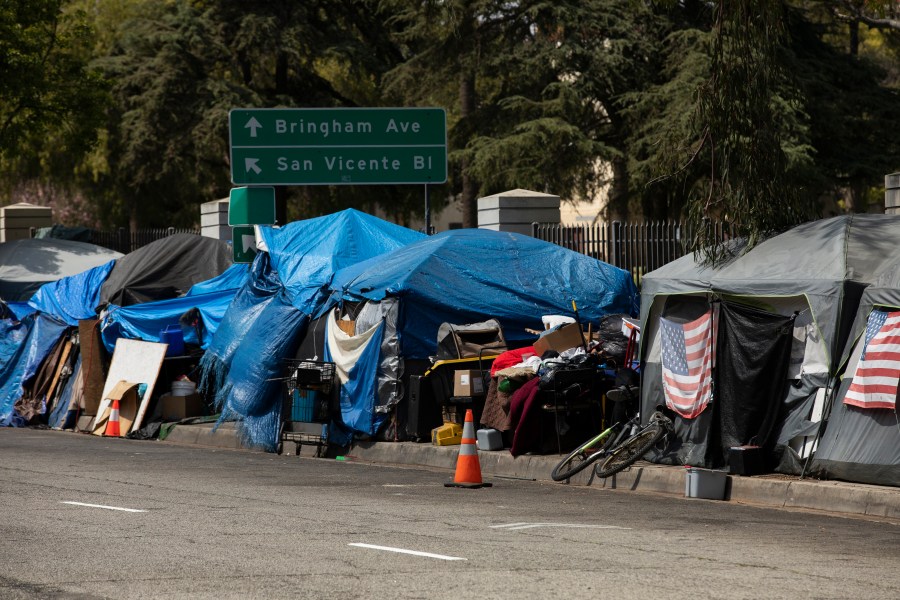(NewsNation) — Several cities and states have passed laws in recent years restricting where homeless people can camp, and now, the Supreme Court is hearing a case that could impact how jurisdictions respond to the escalating homeless crisis moving forward.
This landmark case involving the city of Grants Pass, Oregon, will address how far cities can go to police homelessness and comes after the nation’s homeless population surged to a record level.
The issue has transcended political fault lines, with officials on both sides of the aisle calling for the justices to overturn a lower court decision that ruled it was unconstitutional to punish people who are “involuntarily homeless” for sleeping outside if there are not enough shelter beds.
That ruling blocked Grants Pass — and other cities across the West — from issuing criminal and civil citations to those sleeping outside when there isn’t shelter space.
California’s Democratic Gov. Gavin Newsom , as well as a coalition of 24 Republican attorneys general, have all filed briefs in the case, arguing that previous court decisions have limited their ability to deal with homeless camps.
However, advocacy groups say the decisions provide important legal protections and argue that criminalizing people for sleeping outside when they have nowhere else to go amounts to cruel and unusual punishment.

Which cities and states have passed camping bans?
Democrat and Republican-led jurisdictions have enacted tougher anticamping rules recently, but not all have held up.
Last month, Florida GOP Gov. Ron DeSantis signed a bill banning homeless people from camping on city streets, sidewalks and in parks. The law requires municipalities to create designated spaces for camping and sleeping if homeless shelters are full.
Other states like Texas, Tennessee and Missouri have passed similar statewide bans in recent years. However, Missouri’s law was later struck down by the state Supreme Court.
In Georgia, state lawmakers passed a bill that requires cities and counties to enforce existing public camping bans.
Out West, where homeless encampments are especially prevalent, city leaders in Portland, Oregon, passed a daytime camping ban, but enforcement was paused after legal challenges.
California is home to roughly half of all unsheltered homeless people in the country, but state lawmakers remain divided about how to address the problem.
Last week, Democrats in California voted down a bill that sought to ban encampments near schools, transit stops and other areas. Still, cities like Los Angeles and San Diego have passed their own policies tightening camping restrictions.
Other cities, including Milwaukee, Las Vegas, Seattle and Providence, Rhode Island, have filed a brief in the Supreme Court case supporting Grants Pass, asking the court to overturn previous rulings. They argue that the lower court’s decisions have “paralyzed” local communities’ ability to address the issue.
How big is the homeless crisis?
The number of homeless people in the U.S. rose to a record 653,000 last year, increasing 12% from the year prior, according to the federal government’s most recent annual count. But due to the way the data is collected, that total may understate the true size of the homeless population.
Biden administration officials attributed the uptick, in part, to rising rent prices and the winding down of pandemic-era assistance.
Last year, the number of veterans (+7%), families with children (+16%) and unaccompanied youth (+15%) experiencing homelessness all rose compared to 2022.
As for the current case before the Supreme Court, the Biden administration has chosen not to take a side, filing a brief “in support of neither party.”
A 2019 report from the National Homeless Law Center found that 72% of U.S. cities surveyed had at least one law restricting camping in public — a percentage that has increased significantly since 2006.
In the report, the nonprofit advocacy group argued that laws punishing homelessness don’t address the issue but instead make it worse by creating additional barriers to income and housing.
A decision in the Supreme Court case is expected by June.






